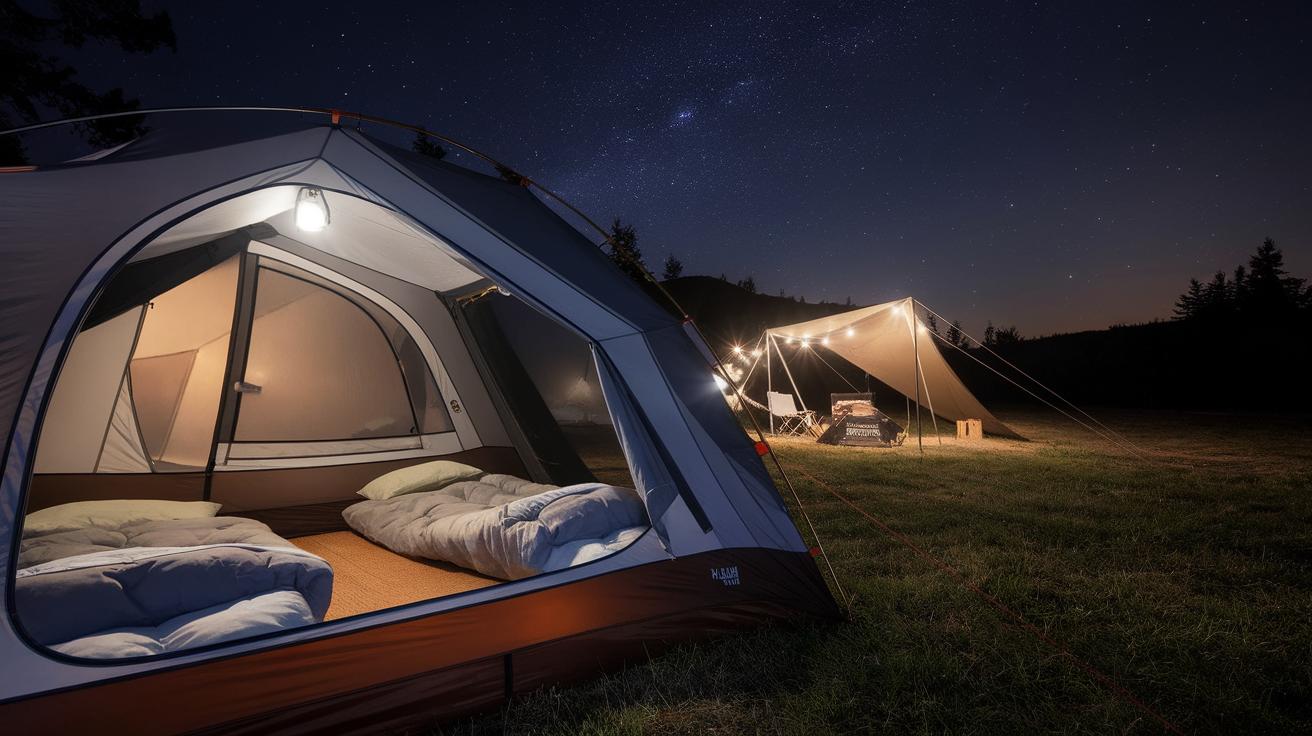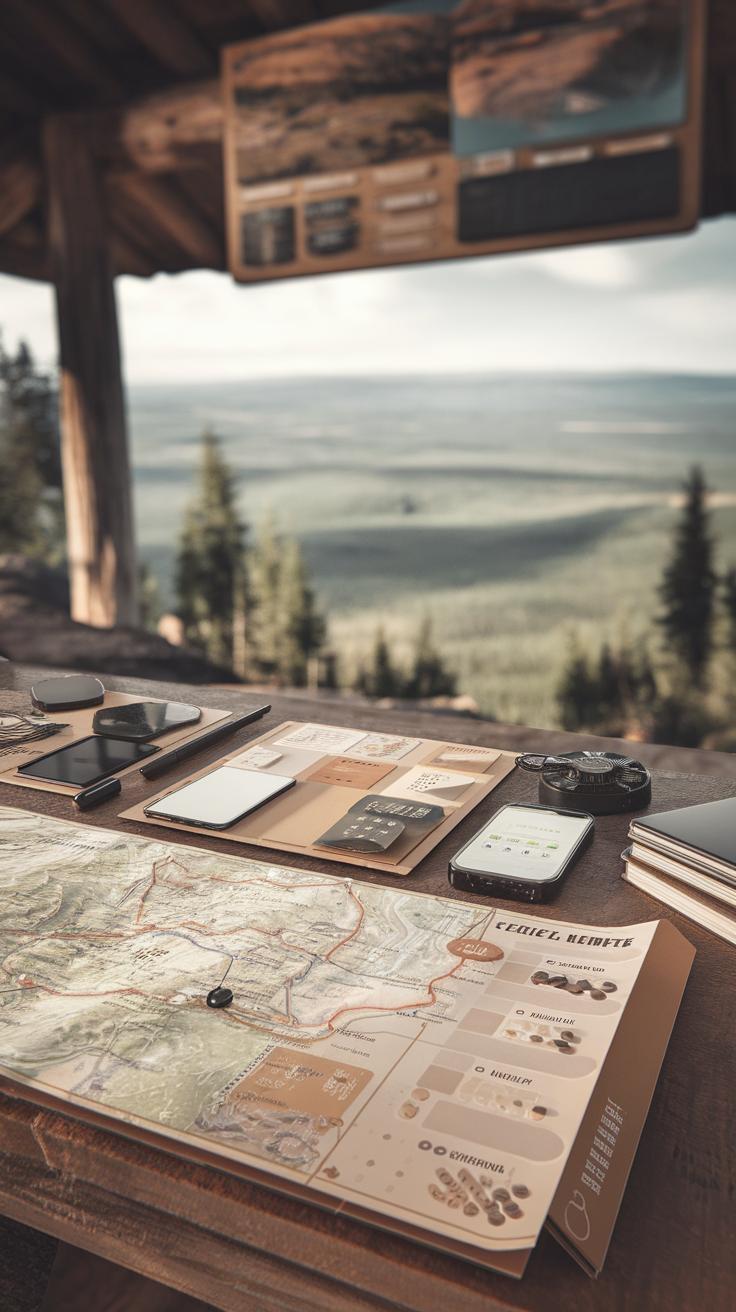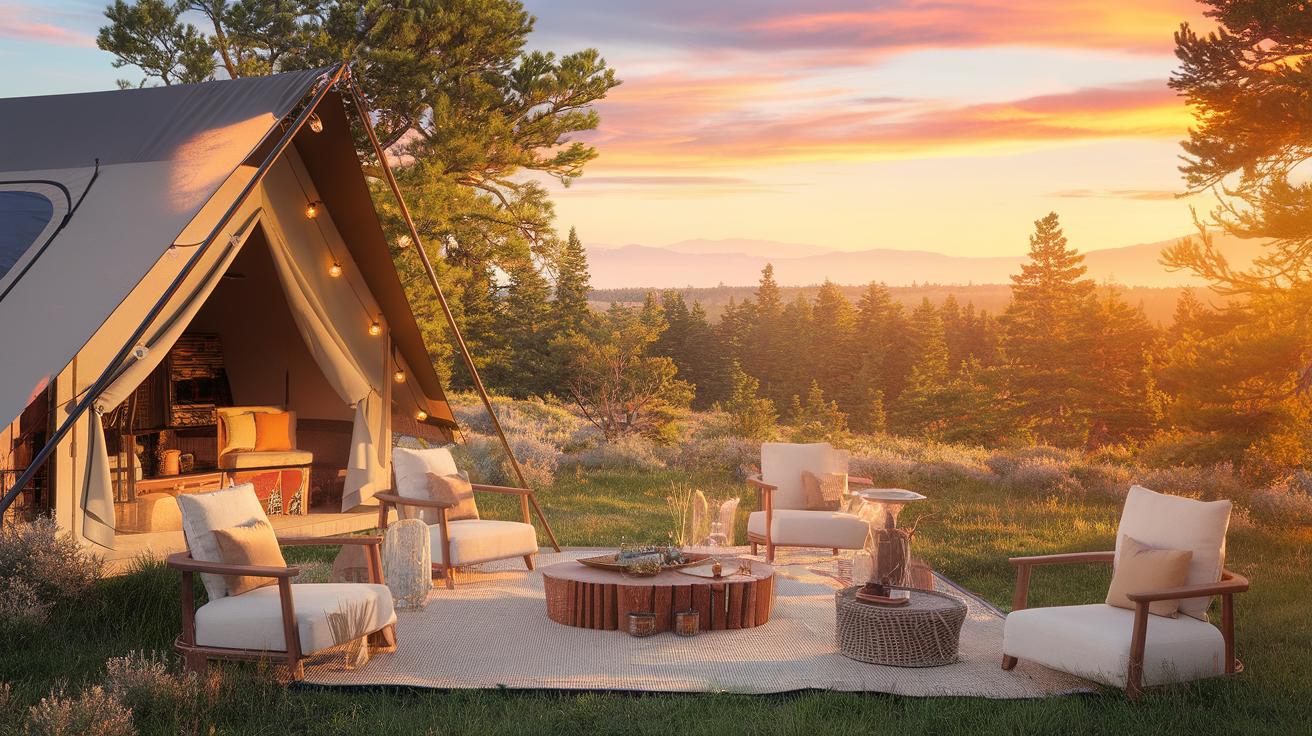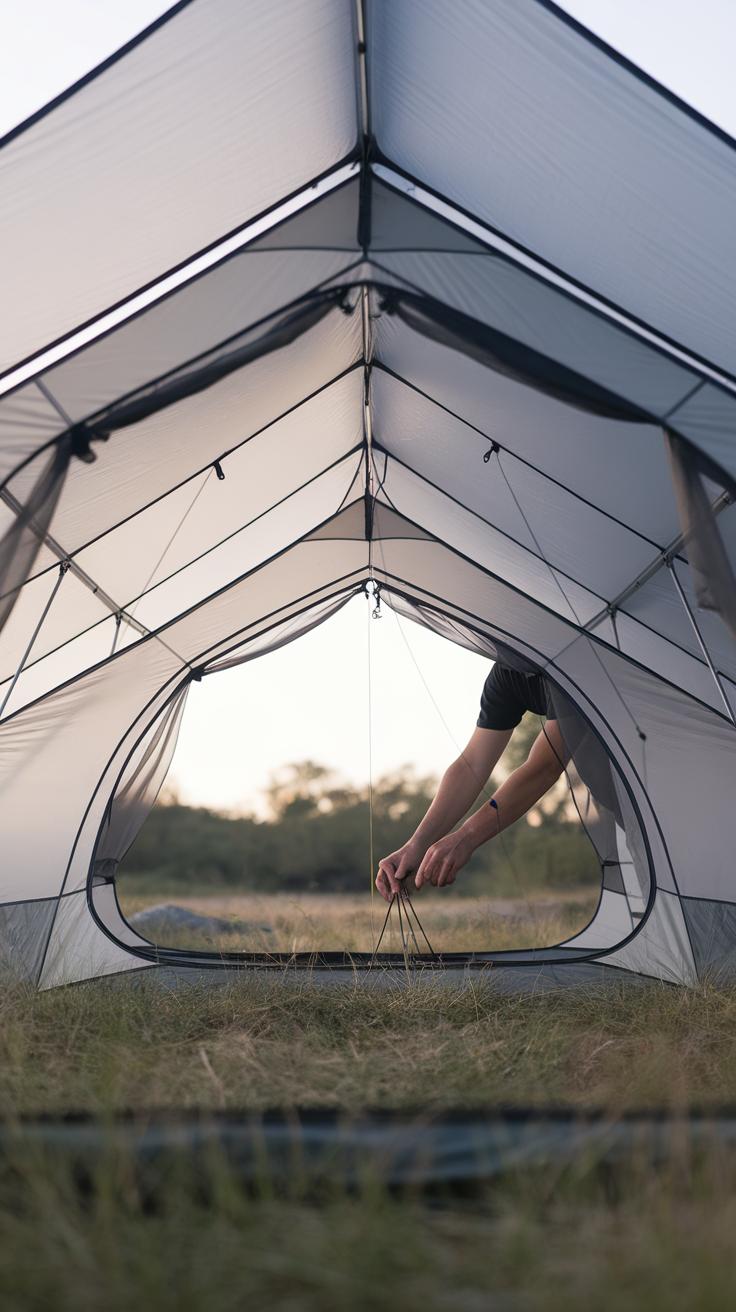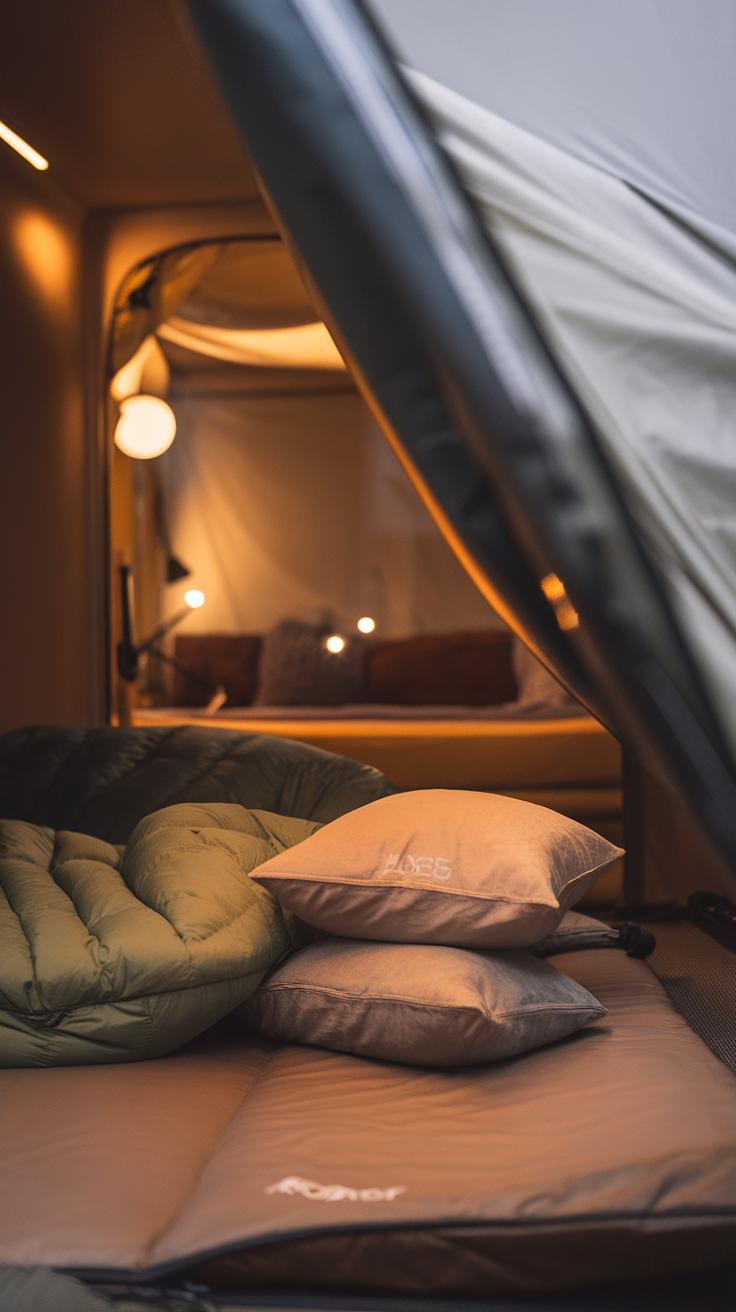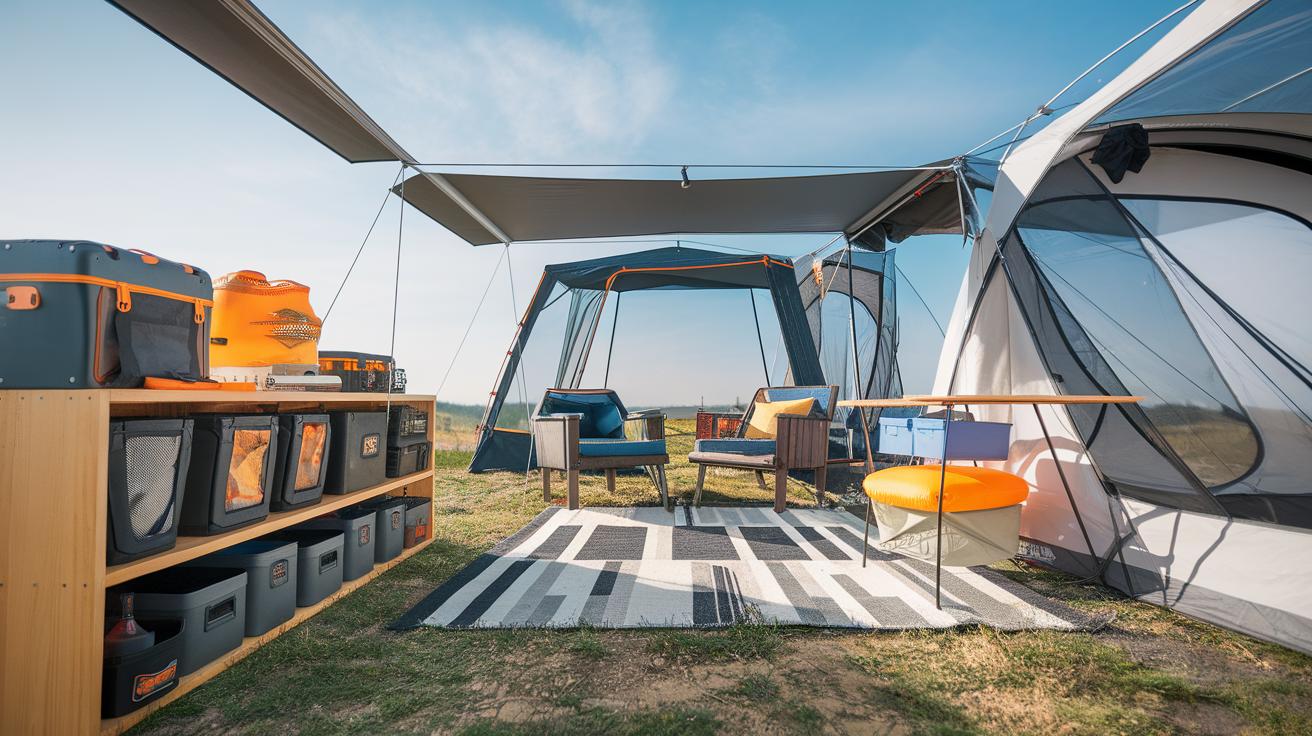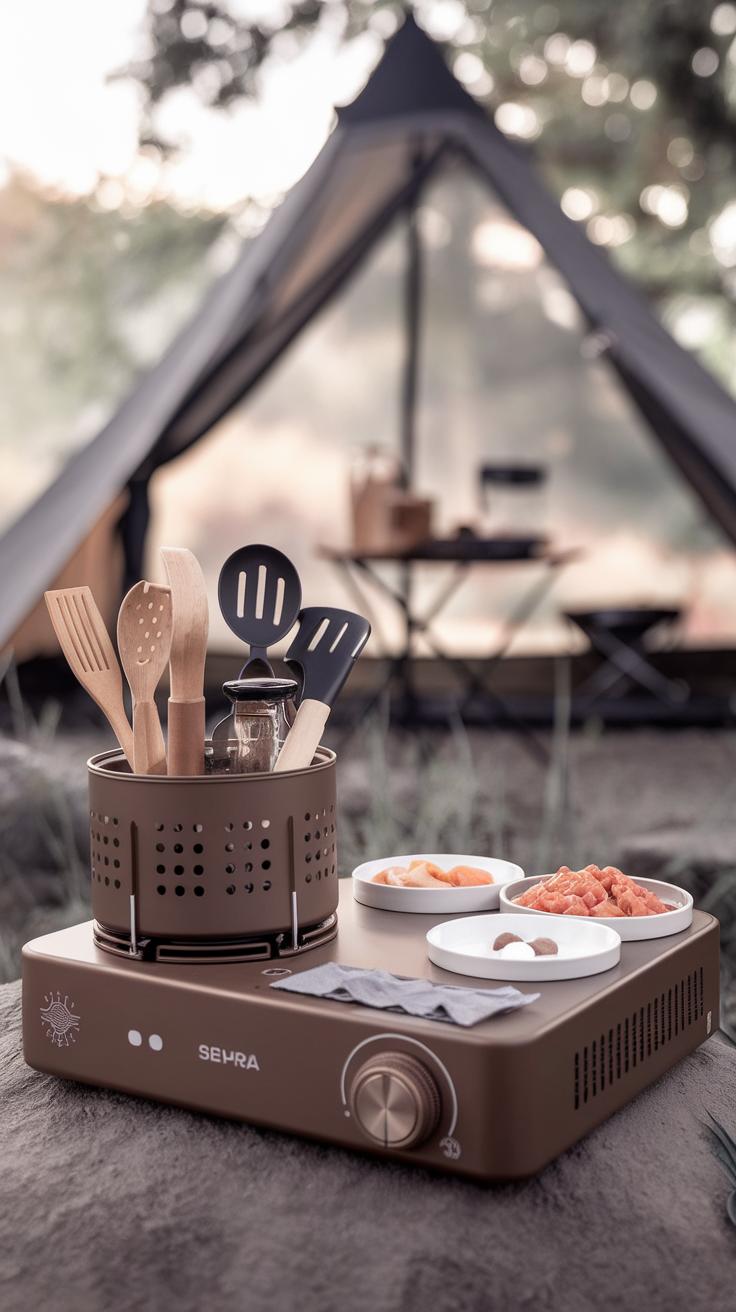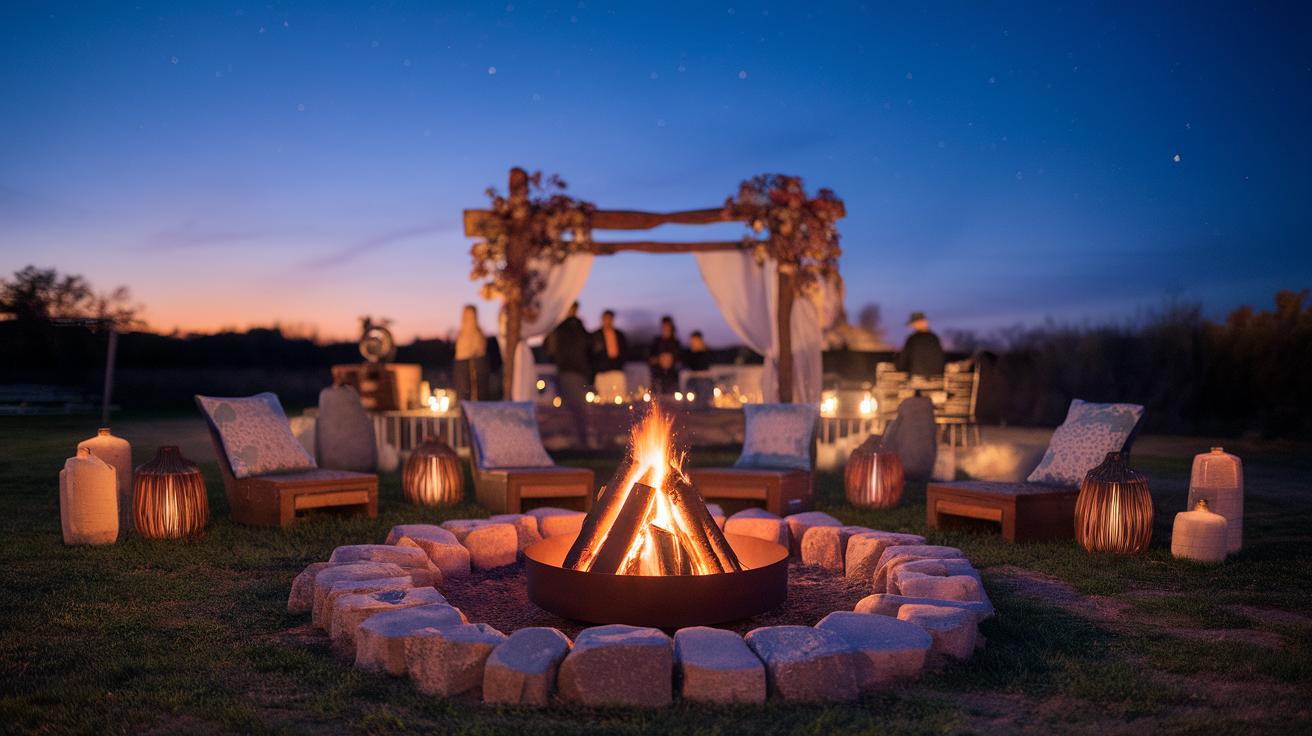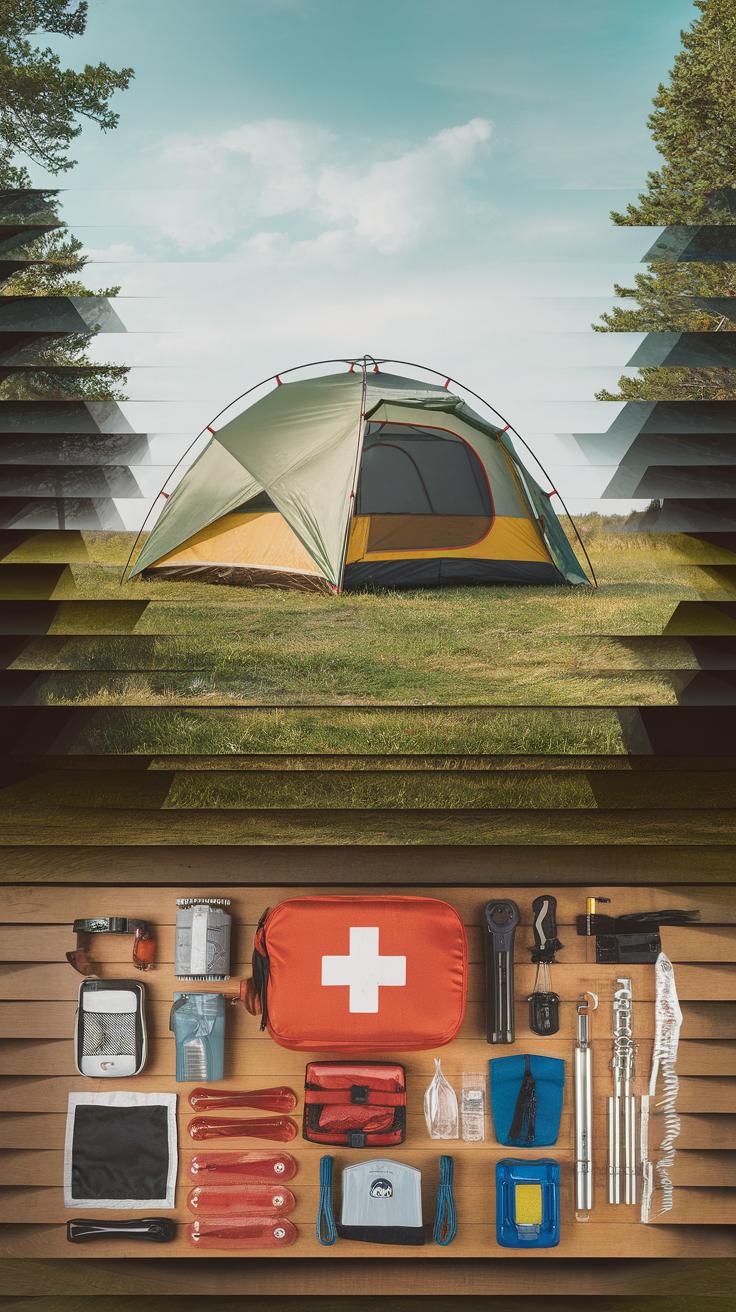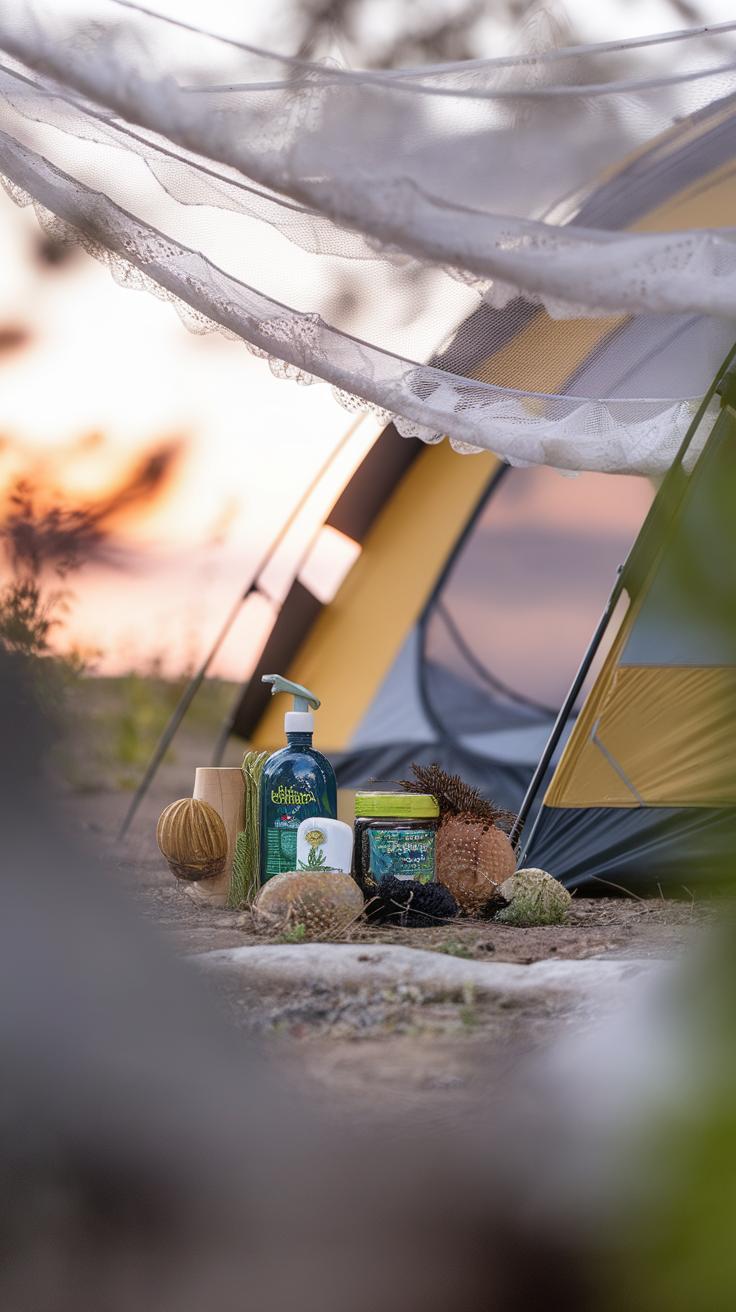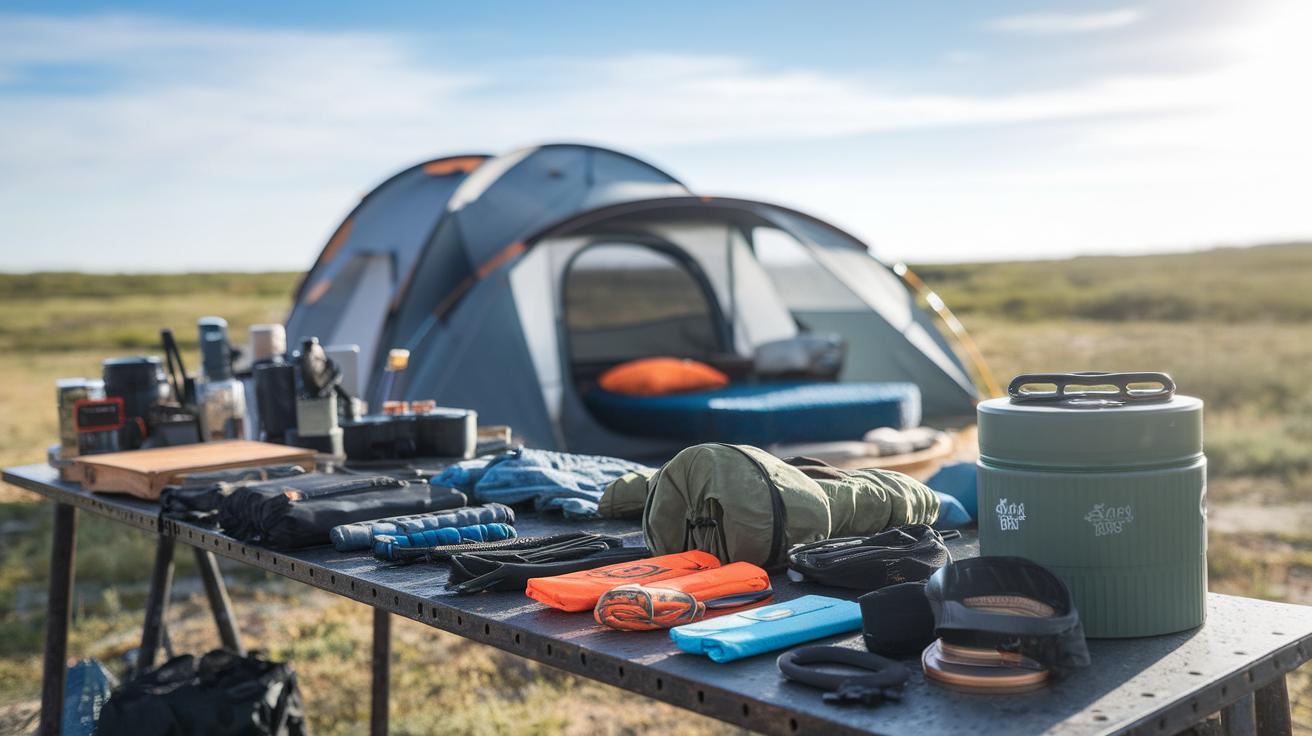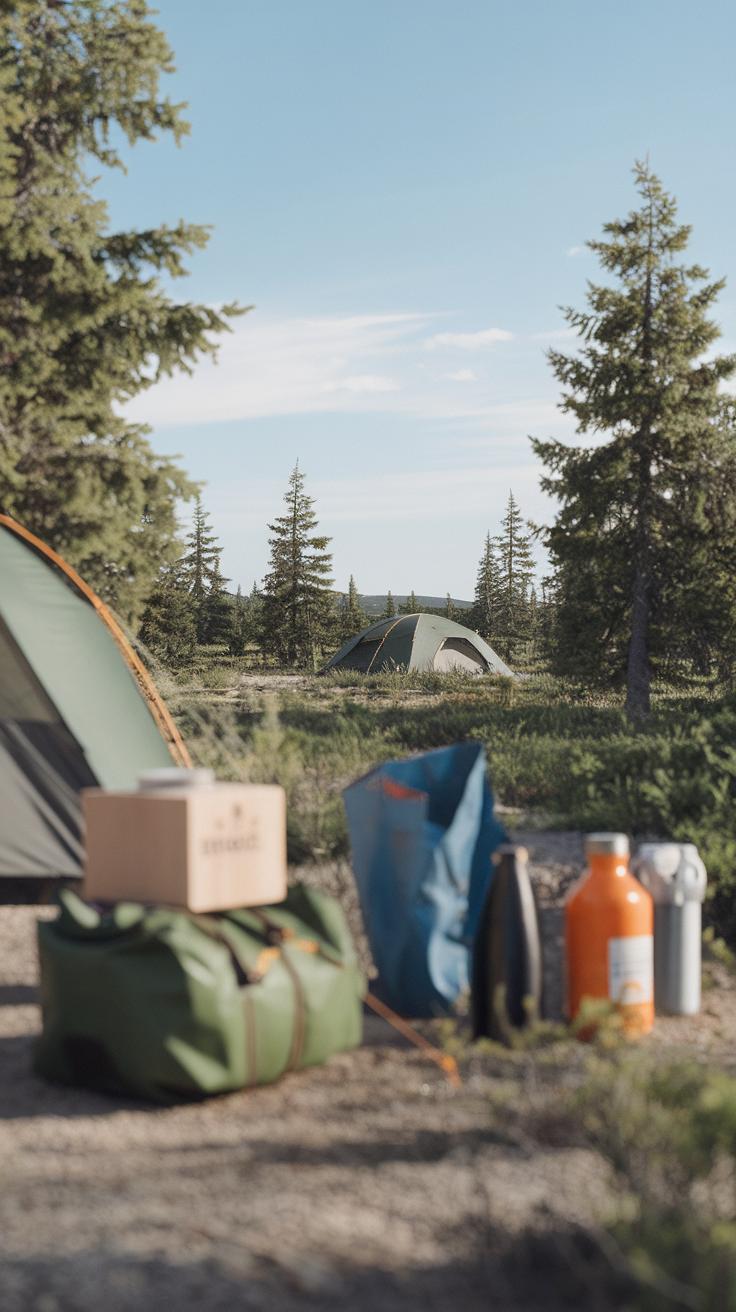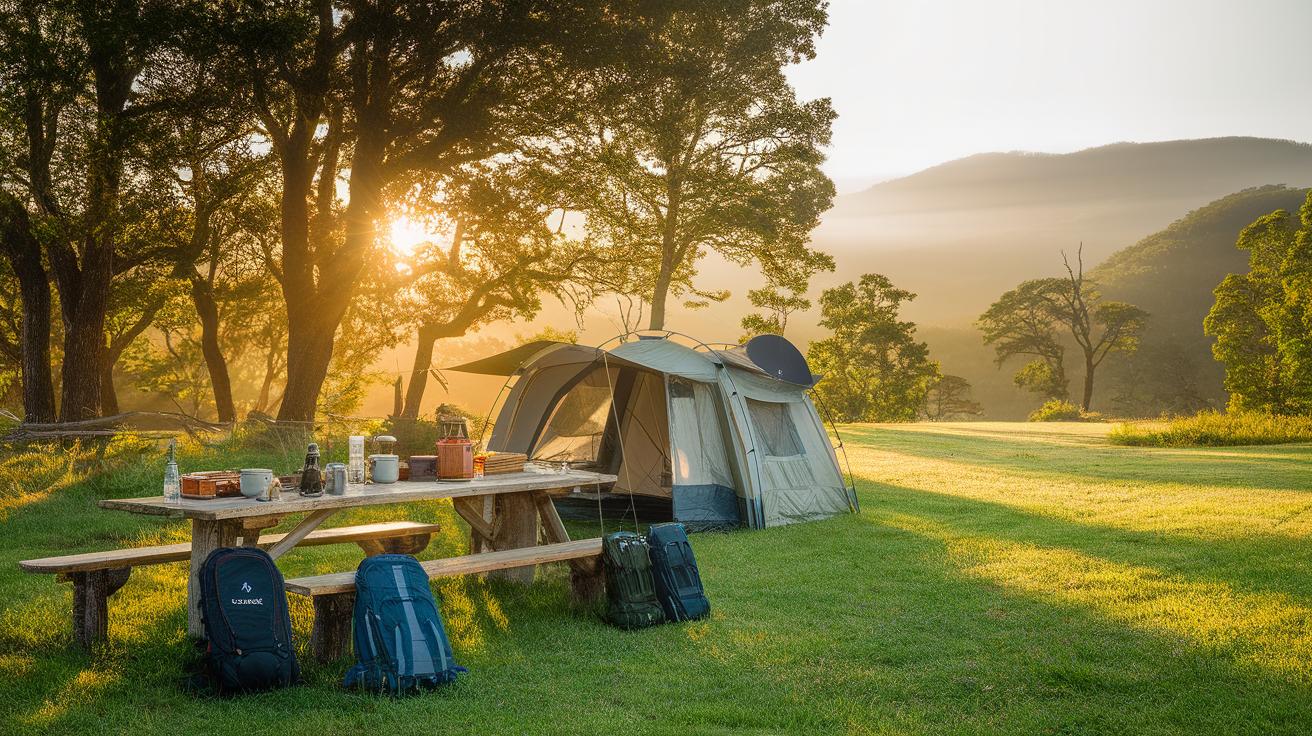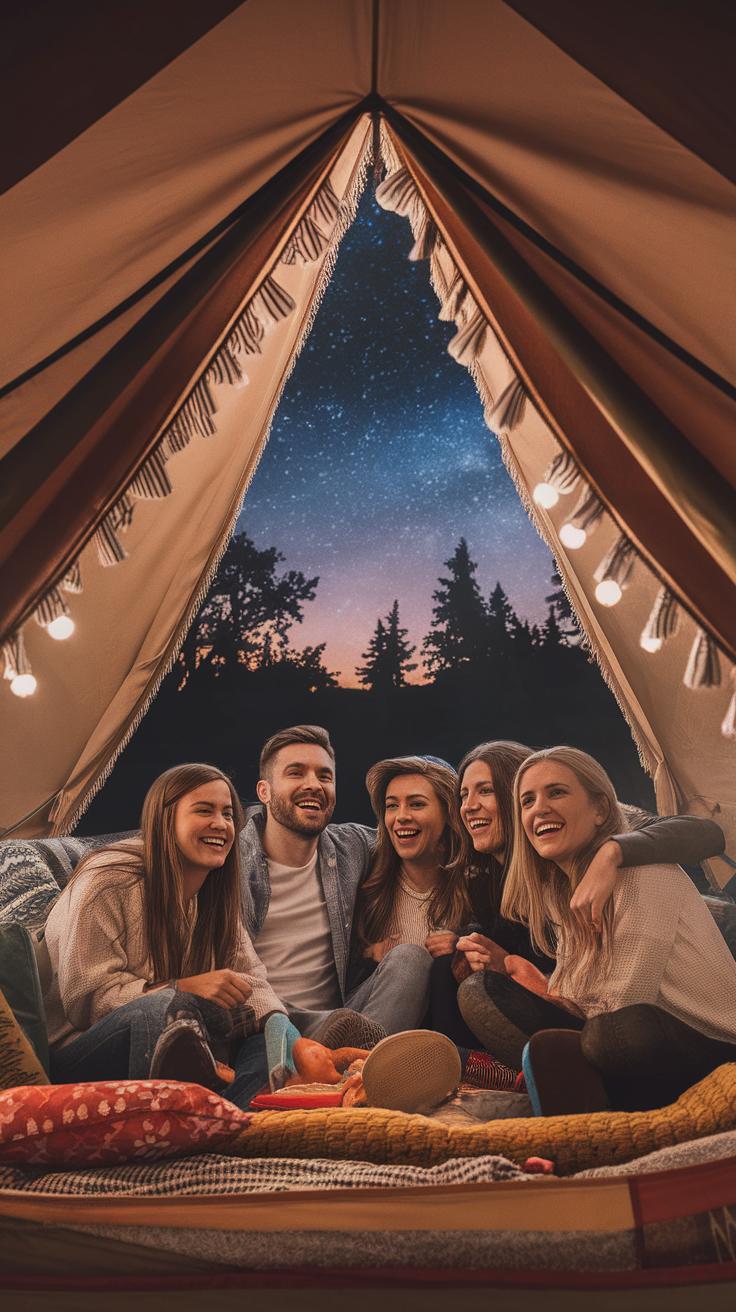Introduction
Tent camping offers a unique opportunity to connect with nature and enjoy the great outdoors. Whether you’re a seasoned camper or just starting out, having the right hacks can turn your camping adventure into a comfortable and exciting experience. From setting up your tent more efficiently to enhancing your comfort while sleeping under the stars, this article will explore the best tent camping hacks that every outdoor enthusiast should know.
As you prepare for your next outdoor excursion, consider the value of these practical tips. They aim to improve your camping efficiency, increase your safety, and ensure that you have a stress-free experience. You will learn about innovative storage solutions, cooking techniques, and ways to keep pests at bay. Join us as we delve into these invaluable tent camping hacks that will elevate your outdoor adventures.
Planning Your Camping Trip The Key to a Memorable Adventure
Proper preparation is the cornerstone of a successful camping trip. Evaluating your campsite’s location is vital; consider proximity to water sources, hiking trails, and restroom facilities. Select a site that offers a balance of convenience and natural beauty, all while adhering to local regulations.
Checking the weather forecast ahead of your trip ensures you’re equipped for any conditions, be it rain or chilly nights. Preparing for the unexpected allows for smoother, more enjoyable experiences. Craft a detailed packing list that includes essential items such as a reliable tent, sleeping bags, cooking gear, and first aid supplies.
Incorporating camping hacks can elevate your experience. For instance, using a headlamp inside your tent frees up your hands while providing ample light. Lastly, don’t forget to pack a portable charger to keep devices powered for navigation and safety. Planning effectively transforms your camping experience from ordinary to extraordinary.
Setting Up Your Tent Efficiently Establish Your Outdoor Shelter
Choosing the Perfect Location
Selecting an ideal spot for your tent can significantly enhance your camping experience. Look for flat terrain away from tree roots, rocks, or sharp objects that could puncture your tent’s floor. Avoid areas prone to water runoff, like valleys or depressions, to stay dry. Set up your tent near natural windbreaks, such as bushes or hills, to protect against gusts and ensure a more comfortable night. Keep in mind potential hazards like falling branches or wildlife activity. Adequate distance from campfires also minimizes smoke exposure while maximizing enjoyment of the outdoors.
Maximizing Comfort Inside Your Tent
Creating a Cozy Sleeping Surface
Selecting an appropriate sleeping surface dramatically influences your comfort while camping. Start with a high-quality sleeping pad that provides insulation and cushioning. Consider using an inflatable pillow or stuffing a lightweight bag with clothes for neck support. Placing a blanket or tarp under your sleeping pad can offer extra protection from the cold ground, thereby enhancing warmth throughout the night. Choosing a sleeping bag rated for the season ensures you maintain a comfortable temperature as well.
Organizing Your Tent Space for Convenience
Maintaining an organized tent can significantly improve your camping experience. Utilize hanging organizers or mesh pockets to store small items like maps, headlamps, and snacks, keeping them accessible yet out of your way. Use a gear loft or an overhead net for storing lightweight items to free up floor space. Having a designated spot for shoes outside the sleeping area helps maintain cleanliness, while adding a small rug inside can provide comfort and reduce dirt within the tent. Adopting these strategies maximizes your space and ensures comfort during your outdoor adventure.
Essential Cooking Hacks for Tent Camping
Portable Cooking Gear for Outdoor Chefs
Choosing the right cooking gear can make all the difference when camping. Compact and lightweight equipment not only saves space but also ensures efficient cooking. A dual-burner propane stove is perfect for preparing meals quickly, while a portable grill can add a smoky flavor to your dishes. Lightweight cookware, such as titanium pots and pans, is ideal for easy packing. Don’t overlook multi-tools, which can replace several utensils and save valuable room in your pack. Consider opting for a foldable table that will serve as your prep space, ensuring a clean and organized cooking environment.
Meal Prep Ideas for Easy Cooking
Meal prepping in advance can streamline your cooking experience. Opt for pre-chopped veggies stored in resealable bags to minimize on-site preparation. Prepare marinades at home in small containers for quick flavoring of meats and vegetables. Emphasizing one-pot meals can reduce both cooking time and cleanup. For breakfast, overnight oats in jars can provide energy without hassle. Pack snacks like trail mix in portioned bags for easy access during hikes. Remember, planning meals not only saves time but also enhances the overall enjoyment of your camping adventure, allowing you to focus on relaxation and creating memories.
Safety First Essential Measures for Tent Camping
Fire Safety
Control and responsibility should define your campfire experience. Always select a designated fire pit for setting up your fire, ensuring it is away from tents, trees, and other flammable items. Keep a bucket of water or sand nearby for emergencies. When you finish cooking or enjoying the warmth, fully extinguish the fire by dousing it with water, stirring the ashes, and making sure everything is cold to the touch. Avoid using accelerants, and never leave fire unattended. Following these precautions allows for an enjoyable camping trip without accidents.
Wildlife Encounters
Minimizing the likelihood of wildlife interactions is critical for safety and preservation. Store food in airtight containers, preferably in bear-proof lockers, if available. Never store food inside your tent, as this can attract animals. When encountering wildlife, maintain a safe distance and avoid feeding them. Use bear sprays if camping in bear-prone areas, and learn how to react to specific animal encounters, whether it’s a bear or a raccoon. Adopting these practices will help prevent unexpected intrusions.
First Aid Preparedness
Having a well-stocked first aid kit is indispensable for any camping trip. Include essentials like adhesive bandages, antiseptic wipes, gauze, and any personal medications. Familiarize yourself with basic first aid protocols, such as treating cuts, insect bites, and allergies. Depending on your location, consider a snakebite kit or tools for splinting injuries. Conduct a quick check on those around you, ensuring everyone knows where the kit is stored. Being prepared equips you to handle mishaps, allowing for safer adventures in the great outdoors.
Keeping Bugs at Bay Effective Strategies for Preventing Insect Bites During Camping
Repellents and Natural Deterrents
Effective bug prevention starts before setting up camp. Choose high-quality insect repellents that contain DEET, picaridin, or oil of lemon eucalyptus for maximum protection. Apply these directly to exposed skin, ensuring you follow label instructions carefully. For those who prefer a natural approach, essential oils like lavender, citronella, and tea tree can serve as effective deterrents. Create your own spray by mixing a few drops with a carrier oil or water. When it comes to natural repellents, remember that reapplication is key, particularly after swimming or sweating.
Campsite Practices to Keep Insects Away
Setting up camp wisely is crucial for minimizing insect encounters. Choose a site away from stagnant water sources, such as ponds or marshes, which are breeding grounds for mosquitoes. To further reduce pest attraction, keep food stored securely in airtight containers and dispose of waste properly. Incorporate citronella candles or bug-repelling lanterns around your campsite—these not only provide light but also help create a less inviting environment for bugs. Covering up with light-colored clothing and using screens when cooking can also create barriers against unwanted intruders, helping to ensure a more enjoyable outdoor experience.
Sustainable Camping Practices Leave No Trace for Natures Sake
Understanding the importance of leaving no trace while camping is vital in preserving natural landscapes for future generations. Camping allows you to immerse yourself in the great outdoors, but it’s essential to tread lightly. Following a few key strategies can significantly minimize your environmental impact. One effective practice is to stick to established trails and campsites, which prevents the erosion of soil and protects sensitive vegetation.
Proper waste disposal is another critical component. Aim to pack out everything you bring in, including food scraps and biodegradable items. If you must dispose of waste, utilize designated toilets or dig a cat hole at least six to eight inches deep and away from water sources. Additionally, consider using eco-friendly products, such as biodegradable soap and organic insect repellents, to further reduce your footprint. Ultimately, adopting these sustainable habits leads to a more enriching and responsible camping experience that respects the beauty of nature.
Creating Lasting Memories The Heart of Tent Camping Experiences
Engaging fully in the camping experience cultivates connections with nature, friends, and family. The great outdoors offers a backdrop that encourages shared moments, whether around a crackling campfire or on a scenic hike. Embrace the visceral joy of storytelling under the stars, laughter echoing through the trees, and the camaraderie that naturally develops in the wilderness.
Fun Group Activities to Enrich Your Adventure
Incorporating group activities elevates the camping experience, making it even more memorable. Organizing team challenges, such as scavenger hunts, can inspire creativity and spark excitement. Cooking meals together can be both fun and rewarding, turning meal prep into a bonding experience. Don’t forget the timeless allure of campfire songs, which can bring everyone together in shared harmony, creating a tapestry of joyful memories that will be cherished long after the trip. These collective moments weave together the fabric of unforgettable camping adventures.
Conclusions
Tent camping is not just about pitching a tent and spending the night outdoors; it is about making the most of your environment with the right skills and hacks. By implementing the tips discussed throughout this article, you will be well-equipped to tackle any camping challenge while enhancing your overall experience. Camping should be fun and relaxing, and these hacks will help achieve that.
As you prepare for your next camping trip, remember that the key to memorable outdoor experiences lies in preparation and strategy. With the knowledge gained from this article, you’re now ready to embark on your camping journey with confidence. Embrace the joys of camping and make lasting memories!

